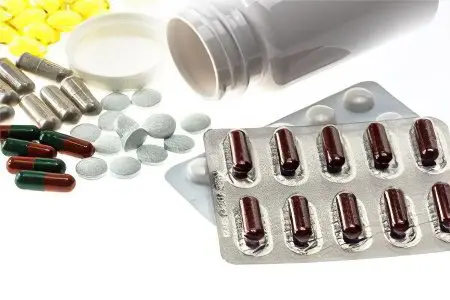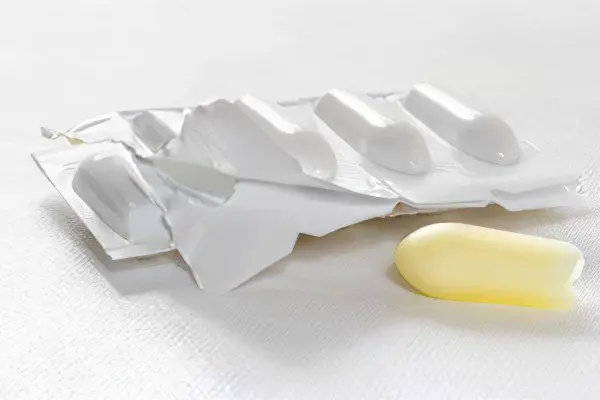Dysbacteriosis is a problem of many people, imperceptible from the outside, but it brings severe discomfort and makes serious changes in the usual life. Drugs that get rid of dysbacteriosis are advertised everywhere, but in order to choose exactly the medicine that will really help eliminate this disease, you need to understand their varieties and properties.
Tablets from dysbacteriosis

Tablet preparations for the treatment of dysbacteriosis can be divided into two main groups – antibacterial (eliminate the main cause of the disease – pathogenic microorganisms) and probiotic (promote the reproduction of intestinal normal flora, increase immunity).
The cause of dysbiosis can be Escherichia coli, enterococcal, staphylococcal, candidiasis and other infections. Common drugs for drug treatment are Levomycetin, Streptomycin, Nystatin, Intetrix, Pifamucin, Furazolin, Enteroseptol.
A doctor can prescribe drugs for the treatment of dysbacteriosis only after bacterial seeding and determining the sensitivity of the pathogen to the selected agent.
Drugs that increase immunity, normalize the microflora and eliminate the negative symptoms of dysbacteriosis:
Sorbents. Polypefan, activated charcoal, Pepidol are sorbent preparations that bind toxic substances and prevent the spread of putrefactive processes in the intestine. Used at the first stage of treatment of dysbacteriosis.
BS from live strains. Bificol, Bactisubtil, Enterol, Colibacterin – are used in the first and second stages of dysbacteriosis, are made on the basis of microorganisms that form the intestinal normal flora.
Prebiotics. Duphalac, Normaza, Hilak-Forte belong to the group of prebiotics that do not contain strains of microorganisms, but create favorable conditions for the development of beneficial microorganisms, and can be used at any stage of the treatment of dysbacteriosis.
Probiotics. Bifidumbacterin, Linex, Narine, Lactobacterin, Bifiform are probiotics that represent an extensive group of drugs used to treat dysbacteriosis of any stage. They contain live strains of beneficial bacteria that normalize the intestinal microflora and inhibit pathological microorganisms.
Enzymes Mezim-Forte, Polyzym, Digestal, Panzinorm-Forte belong to a group of enzymes that help normalize digestive processes, digest food and absorb useful components in the stomach and intestines.
Immunomodulators. Levomizol, Decaris are immunomodulators, contribute to the normalization of local immunity of the gastrointestinal tract, are used at the final stages of treatment to consolidate positive results.
Restorers of motor functions. Duspatalin, Trimedat, Meteospasmil, Immudon – these drugs restore normal intestinal motility, which helps to remove symptoms such as diarrhea, bloating, flatulence.
Stimulants of the intestinal epithelium. Essentiale and other drugs that stimulate the work of intestinal epithelial cells help get rid of intestinal colic.
7 best drugs for dysbacteriosis
The emergence of a wide variety of remedies for dysbacteriosis is due to different criteria for evaluating their effectiveness, which makes it difficult to find one best medicine.
Consider several well-known drugs according to these criteria:
Lactobacterin, is available in the form of tablets and powder – does not have a capsular shell, is not used for candidiasis or hypersensitivity, allergic reactions are possible as a side effect, can be taken with an antibiotic, there are no contraindications for pregnant women, storage in the refrigerator is required.
Acylact (suspension, tablets), contraindicated in candidiasis, possible allergy to the drug, simultaneous use with antibiotics is allowed, pregnant women are prescribed as directed by a doctor, contraindicated in children under 3 years old, stored in the refrigerator for up to 12 months.
BioBacton – not available in capsules, prohibited for candidiasis, there is a possibility of an allergic reaction, compatible with antibiotics, suitable for children, stored in the refrigerator.
Bifidum bacteria – powder and solution in ampoules, cancellation if hypersensitivity or candidiasis is detected, incompatible with antibiotics, prescribed for children from 3 years old, pregnant and lactating mothers – only according to indications, storage is carried out in a refrigerator.
Probiere – without a capsule shell, without contraindications, without side effects, compatible with antibiotics, regular use of the product during pregnancy and lactation is possible, suitable for children older than six months, store in the refrigerator.
Hilak forte – there is no capsule shell, as well as contraindications and side effects, it can be taken with antibiotics, during pregnancy and lactation, it is universal for any age, it is stored at a temperature of less than 10 ° C.
Lineks – is produced in a capsule shell, has no contraindications and any side effects, can act in parallel with antibiotics, without age restrictions, can be stored in a dry room with an air temperature of no more than 25 ° C.
Fibraxin – contains arabinogalactan dietary fiber, which promotes the growth and reproduction of beneficial microorganisms. Supports local and affects systemic immunity.
Probiotics based on lactobacilli
Distinguish tablet and powder form of drugs in this group. The first includes Lactobacterin, the second is represented by Biobacton and Atsilact. Acylact is also available in the form of suppositories, which is considered safer to use, as it does not inhibit beneficial microorganisms that live in the intestines. The above funds can be taken together with antibacterial drugs, but they are not suitable as the only treatment for complex dysbacteriosis, as they are monopreparations, that is, they contain a medicinal substance of the same type.
Probiotics based on bifidobacteria
Probiotic preparations based on bifidobacteria have a variety of forms of release and are among the very first means of treating dysbacteriosis. So, there are tablet form (Bifidobacterin forte) and powder form (Probifor) of medicines. There are contraindications for the use of suppositories and tablets with bifidobacteria for children under the age of three, and drugs in this group are not combined with antibiotics.
Probiotics – a combination of bifido- and lactobacilli

This type includes the powdered probiotic Florin Forte, suitable for children from infancy and adults. For infants, the drug is mixed in the proportion indicated by the doctor with a formula for feeding or breast milk, older children and adults take the drug with food. Florin Forte requires special storage conditions that are easily observed in the refrigerator: 0 – 10 ° C. Some antibiotics can worsen or change the work of Florin, therefore, for the simultaneous use of these drugs, it is necessary to consult a doctor who will help you choose an effective combination of drugs.
The analogue of Florin Forte in terms of the composition of bacteria is Linex.
Compared with the first drug, it has undeniable advantages:
An additional enterococcus in the composition of the drug enhances the complex effect;
There are no special requirements for storage conditions;
Easily combined with other antibiotics;
It has no contraindications for pregnant and lactating mothers.
It has no contraindications for age – babies do not have to mix the product into milk, but you can simply dissolve the contents of the capsule in warm water.
Probiotics with bifidobacteria and lactobacilli can be dangerous for patients in an immunodeficient state or excessive allergic sensitivity. In the presence of these health defects, you should consult a doctor for the correct calculation of doses and the possibility of taking probiotics.
Probiotics based on bifidobacteria in combination with other bacteria
An interesting combination is the drug Bifikol, which contains, in addition to the standard set of bifidobacteria, opportunistic E. coli, which is also normally found in the intestinal microflora and is able to suppress microbes with greater pathogenicity. Unfortunately, the simultaneous intake of a course of antibiotics and Bificol can be harmful to the body, which cannot be said about its counterpart “Bifiform” with enterococci.
Prebiotics based on lactulose
It is known that simple, rapidly digestible carbohydrates are the main resource for the development of pathogenic intestinal microflora. Lactulose prebiotics contain a special enzyme that breaks down carbohydrates into organic acids that inhibit the development of microbes and reduce blood pressure.
Known drugs from this group:
Dufalac;
Normase;
Portalak;
Romphalak.
Prebiotic preparations
To maintain and restore the balance of the intestinal microflora, medicines with light acid and fatty acids have been invented, which contribute to the regeneration of the natural microflora. Hilak forte, for example, helps to strictly maintain the balance of electrolytes and restore the epithelial cells of the intestinal mucosa. Lactobacilli in its composition secrete lactic acid, which regulates acidity, favorable for the development of beneficial microflora.
Candles from dysbacteriosis

Drug treatment of dysbacteriosis is carried out not only with drugs in the form of capsules and tablets, but also in the form of suppositories, which differ in composition (antibiotics, probiotics) and in the method of use (vaginal, rectal). The advantages of this dosage form of drugs include local effects, which allows you to normalize the microflora locally, without affecting the entire body in general.
Vaginal
Vaginal suppositories are used to treat bacterial vaginosis in women, to restore the normal microflora of the vagina.
Polygynax, Terzhinan, Betadine – antibacterial suppositories inhibit the development of pathogenic microorganisms (bacteria and fungi), prevent trichomoniasis and other infections. Contraindication for use is pregnancy, especially in the later stages.
Labilact, Acilact, Vagilact, Gynoflor – candles with a probiotic complex, which is made up of lactobacilli, bifidobacteria, as well as estriol, lactose and other ingredients. These drugs restore the normal microflora of the vagina after antibiotic treatment, with excessive reproduction of pathogenic microorganisms due to hormonal imbalance, with weakened immunity, diabetes and thrush.
Rectal
Rectal suppositories restore the normal intestinal microflora in adults and children, there are two groups of agents – antibacterial and probiotic.
Apis, Kipferon, Prostopin, Anuzol, Nilegan, Genferon, Levomycetin, Procto, Viferon – antibacterial, antimycotic rectal suppositories contain local antibiotics, antiviral and antifungal agents, glucocorticosteroids can be included in their composition, which prevents inflammation of the intestinal walls. The local method of using suppositories eliminates side effects, while maintaining the maximum effectiveness of the remedy for dysbacteriosis of any complexity. However, rectal antibacterial suppositories should not be used during pregnancy.
Bifinorm, Laktonorm, Lactobacterin, Bifidumbacterin – suppositories with a probiotic complex that supply the intestines with beneficial microorganisms, restoring its normal microflora. The use of probiotics in the form of suppositories is more effective than in the form of tablets or capsules, since lacto- and bifidobacteria are not destroyed during the passage of the gastrointestinal tract, but are immediately delivered to their usual habitat.









